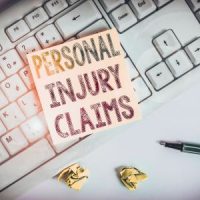Limited Tort vs. Full Tort in Pennsylvania

When choosing automobile insurance in Pennsylvania, it is vital for a driver to understand the different available options. Pennsylvania is one of the “Choice” no-fault states. This means that in Pennsylvania, drivers can choose the no-fault system or opt out of it and choose a tort policy. Drivers who prefer a tort policy must decide whether to purchase a Limited Tort or Full Tort policy. Below, we explain how Limited Tort differs from Full Tort in Pennsylvania.
What Does Tort Insurance Mean?
Motor vehicle accidents happen for various reasons. Sometimes, motor vehicle accidents occur due to the negligence of other drivers. Negligence arises when a driver fails to act with reasonable care, resulting in harm or injury to another person. Tort insurance protects individuals in vehicle accidents by allowing them to seek compensation for damages resulting from another party’s negligence. As mentioned, Pennsylvania is a “Choice” no-fault state, meaning drivers can opt out of the no-fault system and choose a tort policy. While a tort policy allows a driver to sue an at-fault driver, a no-fault insurance policy means that an injured person will be compensated by their insurance company regardless of who is at fault for the accident.
Limited Tort vs. Full Tort
Pennsylvania provides drivers with two types of tort insurance: Limited or Full Tort insurance. Understanding how Limited Tort differs from Full Tort is vital for anyone navigating the intricacies of insurance coverage or a personal injury claim after a vehicle accident.
Limited Tort
As the name suggests, Limited Tort limits the type of compensation that can be recovered for personal injuries following a vehicle accident. Limited Tort coverage allows a person and their household members to pursue compensation from an at-fault driver for medical bills and other out-of-pocket expenses. However, this option does not allow for the recovery of non-economic damages, such as pain and suffering. However, exceptions exist that allow a party to sue for non-economic damages. The following are some of the exceptions listed under 75 Pa. Cons. Stat. § 1705(d);
- The driver who caused the accident was under the influence of alcohol or a controlled substance
- The injured party suffered “serious injury,” which includes serious impairment of a bodily function or serious, permanent disfigurement
- The driver who caused the accident was uninsured
- The driver who caused the accident was driving a vehicle registered in another state
Full Tort
Under Pennsylvania law, Full Tort insurance gives an individual an unrestricted right to seek compensation for injuries caused by another driver. Under Full Tort insurance, a person and their household members can seek compensation for medical bills, lost wages, property repair costs and other out-of-pocket expenses, as well as compensation for non-economic damages, such as pain and suffering, which offers compensation for the negative effects an injury has had on the overall well-being of the victim.
Since Full Tort coverage offers more protection than Limited Tort insurance, it typically costs more because it allows the insured to seek more available relief for various types of bodily injuries.
It is strongly recommended that you elect Full Tort, as well as maximize your underinsured (meaning the driver who hit you had an abnormally low policy limit to cover bodily injury) and uninsured policy coverage (driver had no insurance) to best protect you and your family in case you are involved in a vehicle accident.
Some auto insurance companies push limited tort for its insureds because its significantly limits your auto insurance companies exposure to pay your claim for injuries if you are hit by a driver who (a) is considered underinsured with exceedingly low auto policy limits to cover bodily injury for you and your passengers, and (b) has no insurance.
Legal Help Is Available
Whether you have Limited Tort or Full Tort, our Lehighton & Carbon County personal injury attorney at Adam R. Weaver, Esq., can help you with your case. Contact us today to schedule a consultation.
Source:
legis.state.pa.us/cfdocs/legis/LI/consCheck.cfm?txtType=HTM&ttl=75&div=0&chpt=17&sctn=5&subsctn=0
